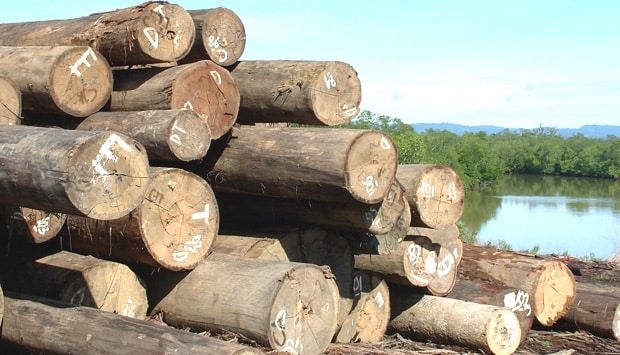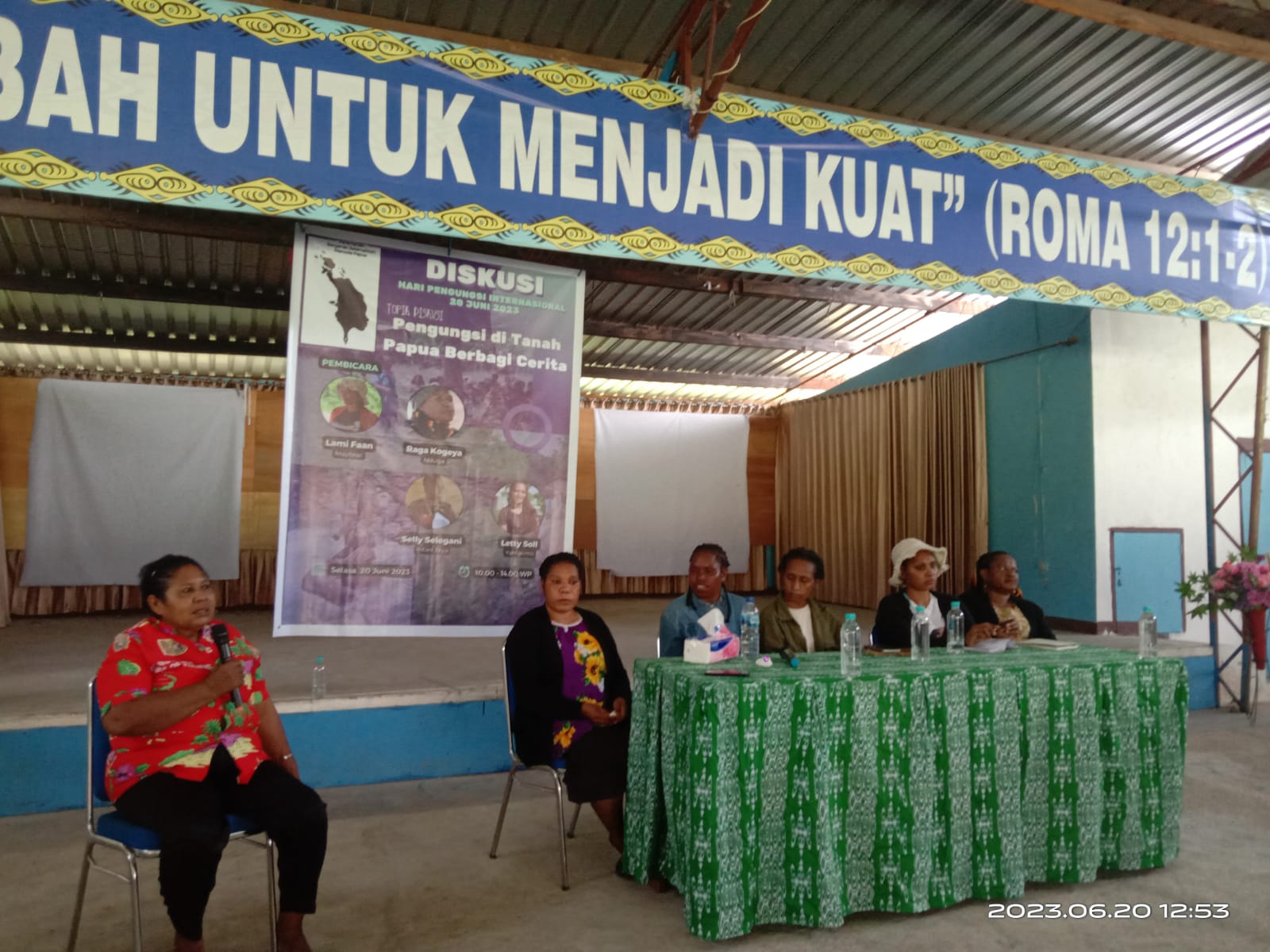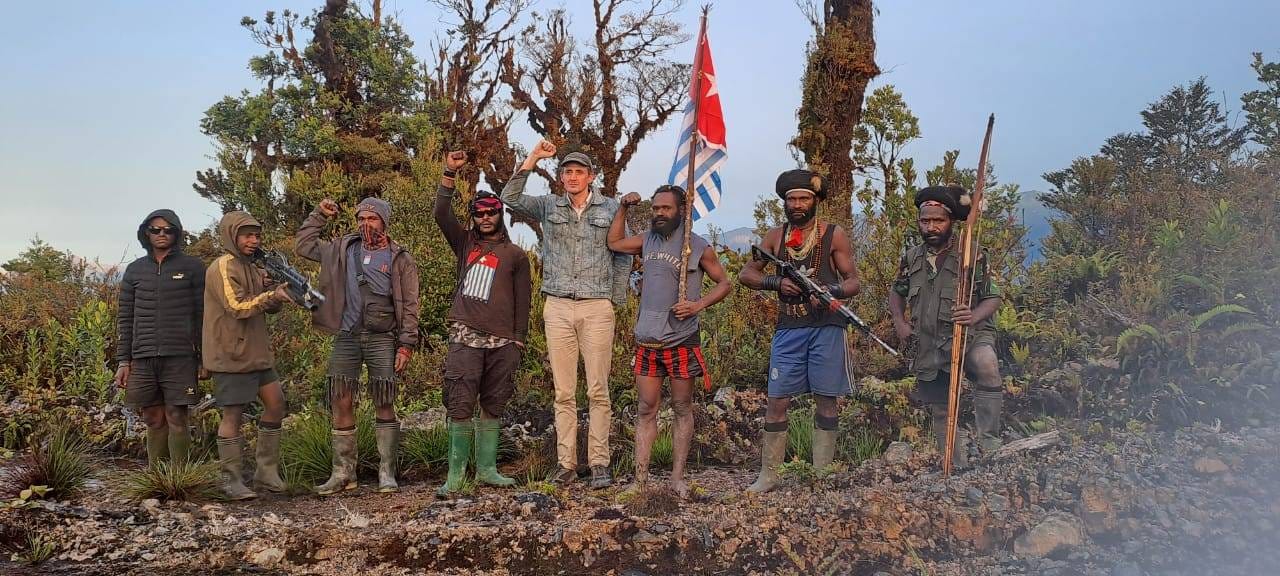
Jayapura, Jubi – Tempo journalist Avit Hidayat shared his experience in doing an investigation about the circulation of illegal timbers from Papua’s forest as a resource person for the discussion about “ Papua’s Forest and Logging Disputes”.
Auriga Nusantara, Eyes on the Forest, Tempo Institute, Free Press Unlimited, and Tempo Media Grup held this forum in Jakarta, Monday, 28 January 2019 and attended by other resource persons, such as Laode M. Syarif (KPK commissionaire), Rasio Ridho Sani (Gakkum-KLHK), Hilman Nugroho (PHPL-KLHK) Muhamad Kosar (JPIK), Timotius Murib (Majelis Rakyat Papua) and Papuan stakeholders from indigenous peoples, Papuan Parliament and Papua Provincial Forestry Office.
In the discussion, Avit said it is essential for the public to know about the situation in Papua. “The tropical forests in Papua are the last (forests) in Indonesia, while the Merbau wood which is the Papuan endemic trees have been becoming the target of the international market,” he said.
Furthermore, Avid said he conducted the investigation in many different places and interviewed many resource persons; and in Papua, the Tempo team went further to the logging sites. There, they witnessed how the workers who come from other regions carried out the illegal logging activity. They also met transporters, woodmasters, drivers, and logging company staffs.
“And the most important thing is we met the supplier. The supplier is a mediator of the logging companies who play a role to bargain with ‘ondo’—the tribal chief–for compensation. For example, if in a village there are common indigenous lands, the supplier comes to measuring the areas, and give payment to indigenous peoples.”
In their investigation, the Tempo team also met the owners of a logging company who later admitted about the illegal logging activity. However, they called it the unregistered community logging.
Meanwhile, in Aroba Sub-district of Teluk Bintuni, Papua Barat, the team went to the forest areas of the company who received the Business License for the Utilization of Natural Forest and Timber Product (IUPHHK-HA) that formerly known as a Forest Concession Permit (HPH). There, the team found the manipulation of a wood barcode. For instance, the barcode for ketapang wood is used for Merbau wood.
Moreover, the team also investigated the primary industry in Papua, Surabaya, Lumajang, Gresik by tracing the distribution of logs. Here, they found another finding, namely the fake transport data and officials’ involvement, whereas the illegal retribution practice has also become their another concern.
In their journey from Sarmi to Jayapura Municipality, the team discovered 25 retribution posts that consist of the indigenous institution, police (military) and Forestry Office. “This is the fact that we found, but I couldn’t capture it because it was too risky. We even witness a military truck used to transport the logs.”
Furthermore, the Tempo team met the export logging companies and found those companies able to export up to 6,000-meter cubic annually, while based on the Forest Product Information Management System (SIPUH), they only allowed to export around 100-meter cubic.
“In Surabaya, we went to a barge and talked with an officer. He said not all logs are given barcode. A few logging companies intentionally inserted non-barcode logs or illegal logs in there. They are mostly the HPH holders, and they even put the timbers between the logs.”
However, all these findings did not include in the audit industry report registered in the Timber Legality and Verification System Legality and Verification System (SVLK) which consist of the Assessment Agency for Sustainable Forest Production Management (LP-PHPL) and Timber Verification Agency (LV-LK). Both agencies are responsible for assessing the sustainable forest product management and verify the legality aspect of timber based on the system and standards set by the government.
“We also got the information about the involvement of LV-LK and LP-PHPL, which means they play around with such companies and culprits from the forestry office. I think the KPK has identified these cases.”
In the meantime, a resource person from the National Accreditation Committee (KAN) acknowledged that there were bribery practices in the LV-LK. The audit report had often finished before the field assessment.
Meanwhile, the participants appreciated the findings of Tempo’s investigation. They expected the government to find a solution immediately, whether it’s a regulation or supervision and law enforcement.
On the other hand, a representative of LV-LK objected this report regarding the bribery practices in his institution. But Avit said until now none of the resource persons withdrew their statements and opposed the result of the team’s investigation.
Meanwhile, Agung Wijaya, Avit’s editor for this covered story, said he was worried about Avit’s safety during the investigation. But finally, this report was completed and published.
He further said Tempo had traced the case of illegal logging since 2017. Thus, publishing the investigation report becomes a moral burden for Tempo. Therefore Tempo will continue to monitor this issue and welcome other stakeholders who attended this forum for further discussion.
“Through this coverage, Tempo attempted to look the case thoroughly even though it might not give a solution because the solution is actually in the hand of all of you (who come to this forum).” (*)
Reporter: Timoteus Marten
Editor: Pipit Maizier
















